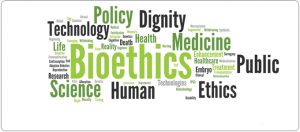
2004 Tsunami disaster was followed by a huge influx of foreign organisations and individuals offering humanitarian aid, including counselling to Sri Lankan survivors. When research is combined with humanitarian aid, and at times clinical care (therapeutic misconception), there can be undue inducement for participation, in this vulnerable population. It might not be explicit to the tsunami survivors that what they are participating in is research.
Issues get more complicated because researchers might rush to collect data, without adequate planning and under the disguise of “needs assessments”. Research can include clinical care but it should be made explicit to the participants because clinical care is something routine whereas research is not, particularly in the developing world. Otherwise survivors are at risk of exploitation for research disguised as clinical care.
Anticipating this situation, we in advance launched a campaign under the title ‘Prevent, Re-traumatisation of Traumatized’. This included local, regional and international work (Sumathipala & Siribaddana, 2005).